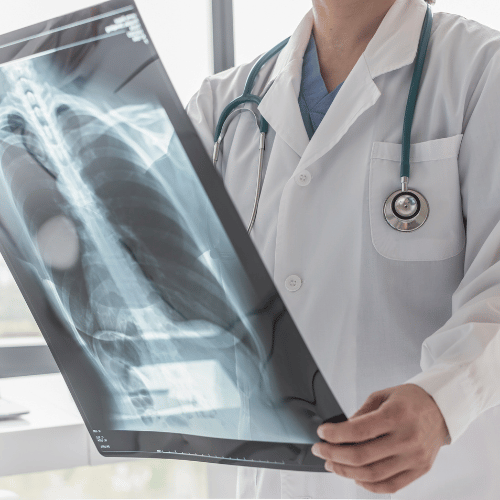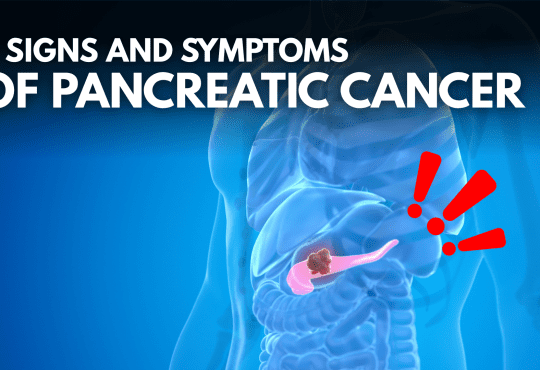
Top 5 Warning Signs of Lung Cancer You Should Never Ignore
Lung cancer is one of the most common and serious types of cancer, but early detection can dramatically improve the chances of successful treatment. Recognizing the warning signs early can make a vital difference in your health.
In this guide, we’ll discuss the top 5 symptoms of lung cancer you should never ignore, helping you stay informed and proactive about your well-being.
What Are the Early Symptoms of Lung Cancer?
Here are five critical signs that may indicate lung cancer. If you notice any of these symptoms, consult a healthcare professional promptly.
5. Persistent Cough: Is a Persistent Cough a Sign of Lung Cancer?
A persistent cough that lingers for weeks or worsens over time is one of the earliest signs of lung cancer.
Seek medical advice if your cough lasts more than three weeks, becomes more intense, or disrupts your daily life.
What to Watch For:
Dry or mucus-producing cough.
Cough that doesn’t improve with medication or home remedies.
Coughing up blood or rust-colored phlegm.
Why It Happens:
Tumors in the lungs can irritate the airways, triggering a chronic cough.
What to Do:
Seek medical advice if your cough lasts more than three weeks, becomes more intense, or disrupts your daily life.
It’s not uncommon to have a cough, especially during cold and flu season, but if you have a cough that lingers for more than a few weeks or becomes more intense over time, it could be a sign of lung cancer.
This type of cough may be dry or produce mucus and can even be accompanied by hoarseness.
You might notice that your cough doesn’t improve with typical treatments or rest, and it might even disturb your sleep or daily activities.
A persistent cough can be more than just an annoyance; it’s a signal from your body that something might be wrong.
The nature of this cough can vary – it might start as a mild irritation and gradually worsen, or it could suddenly become more severe.
Pay attention to any changes in your cough, especially if it becomes deeper, more frequent, or if you start coughing up blood or rust-colored phlegm.
Coughing is a natural reflex that helps clear the airways of irritants, but when it persists, it can indicate that your lungs are trying to expel something more serious.
Chronic coughing can strain your throat and chest muscles, leading to discomfort and fatigue.
If you notice a chronic cough that doesn’t go away despite taking over-the-counter medications or home remedies, it’s essential to get it checked out by a healthcare professional.
Early detection of lung cancer can significantly improve treatment outcomes, so don’t hesitate to seek medical advice if your cough persists.
4. Chest Pain: Could Chest Pain Be Linked to Lung Cancer?
Persistent chest pain that worsens with deep breaths, coughing, or laughing is another symptom to watch for.
If you experience unexplained and persistent chest pain, consult your doctor immediately for imaging tests and evaluation.
What to Watch For:
Dull aches or sharp, stabbing sensations in the chest, shoulders, or back.
Why It Happens:
Tumors may press on nerves or the lung lining, causing discomfort.
Pain can also indicate that cancer has spread to nearby areas.
What to Do:
If you experience unexplained and persistent chest pain, consult your doctor immediately for imaging tests and evaluation.
Chest pain associated with lung cancer is usually persistent and can occur when you cough, laugh, or take deep breaths.
Unlike the occasional sharp pain that can result from muscle strain or indigestion, this pain tends to be more constant and can sometimes feel like a dull ache or a sharp, stabbing sensation.
It might also be felt in the shoulders or back, which can be confusing as it may be mistaken for other conditions like heart issues or musculoskeletal problems.
This pain can be a result of a tumor pressing on nerves or the lining of the lungs (pleura).
As tumors grow, they can cause discomfort and pain by affecting nearby tissues and structures.
Additionally, chest pain can sometimes indicate that the cancer has spread to other areas of the chest, such as the ribs or spine, which can make it even more challenging to pinpoint the exact cause without medical intervention.
If you experience unexplained and persistent chest pain, especially if it’s severe or worsening, it’s crucial to consult your doctor immediately.
Ignoring this symptom can lead to delayed diagnosis and treatment, which can affect your overall prognosis.
Your healthcare provider can perform a thorough evaluation, including imaging tests like X-rays or CT scans, to determine the underlying cause of your chest pain and recommend the appropriate course of action.
Remember, early detection of lung cancer can significantly improve treatment outcomes, so it’s essential to pay attention to your body and seek medical advice when something doesn’t feel right.
3. Shortness of Breath: When Should You Worry About Shortness of Breath?
Difficulty breathing, even during simple activities, can signal lung cancer.
If you experience unexplained shortness of breath, seek medical evaluation. Tests like chest X-rays or CT scans can identify underlying causes.
What to Watch For:
Feeling out of breath after minimal exertion.
Sudden onset of breathing difficulties.
Why It Happens:
Tumors can block airways or cause fluid buildup in the chest (pleural effusion).
Compromised lung tissue can also lead to infections, exacerbating the issue.
What to Do:
If you experience unexplained shortness of breath, seek medical evaluation. Tests like chest X-rays or CT scans can identify underlying causes.
Lung cancer can cause shortness of breath if the tumor blocks a major airway, if fluid builds up in the chest (a condition known as pleural effusion), or if there is an infection in the lungs.
You might notice that you’re out of breath more easily than before, even during simple activities like walking, climbing stairs, or carrying groceries.
This can be a gradual change, making it easy to overlook, but it can also come on suddenly and be quite alarming.
Shortness of breath can result from the tumor physically obstructing the airways, reducing the amount of air that can flow in and out of the lungs.
Additionally, as the tumor grows, it can cause inflammation and fluid accumulation around the lungs, making it difficult for them to expand fully.
Infections or pneumonia can also develop in the compromised lung tissue, further exacerbating breathing difficulties.
If you experience unexplained shortness of breath, it’s important to seek medical advice promptly.
Your healthcare provider can perform a series of tests, such as a chest X-ray, CT scan, or pulmonary function tests, to determine the cause of your symptoms.
It is important to pay attention to your breathing patterns and seek help if you find yourself struggling for breath more often than usual, even during everyday activities.
2. Unexplained Weight Loss: Is Sudden Weight Loss a Symptom of Lung Cancer?
Losing weight without trying is a concerning symptom that may indicate cancer.
Keep track of your weight and report any significant, unexplained changes to your healthcare provider. If you’re shedding pounds without trying, it could signal a serious underlying condition, including lung cancer.
What to Watch For:
Significant weight loss (more than 5% of your body weight) over six months.
Looser-fitting clothes despite no changes in diet or exercise.
Why It Happens:
Cancer cells consume a large amount of energy.
Cancer releases substances that alter metabolism and reduce appetite.
What to Do:
Keep track of your weight and report any significant, unexplained changes to your healthcare provider.
This unintended weight loss can happen because cancer cells consume a lot of the body’s energy or due to changes in how your body processes nutrients.
You might notice your clothes fitting looser or see a significant drop on the scale, despite not altering your diet or exercise habits.
Cancer can cause the body to release certain substances that affect your metabolism and appetite, leading to weight loss.
This symptom is particularly concerning when it happens quickly and without a clear reason.
For instance, if you lose more than 5% of your body weight within six months without trying, it’s considered significant and warrants further investigation.
Stay vigilant about your weight and seek medical advice if you experience any unexplained changes.
1. Coughing Up Blood: Should You Worry About Blood in Your Cough?
Coughing up blood (hemoptysis) is one of the most alarming signs of lung cancer.
Seek immediate medical attention. Tests like imaging scans or bronchoscopy can help identify the source of bleeding and guide treatment.
What to Watch For:
Blood-streaked mucus or significant amounts of blood in your cough.
Why It Happens:
Tumors invading blood vessels in the lungs can cause bleeding.
What to Do:
Seek immediate medical attention. Tests like imaging scans or bronchoscopy can help identify the source of bleeding and guide treatment.
Coughing up blood, also known as hemoptysis is one of the most alarming symptoms of lung cancer and should never be ignored.
Even a small amount of blood in your cough can indicate a serious problem.
Hemoptysis occurs when the tumor invades the blood vessels in the lungs, causing them to bleed.
The sight of blood, whether it’s streaks in the mucus or more significant amounts, is a clear signal that something is wrong.
Coughing up blood can sometimes be accompanied by other symptoms such as chest pain, shortness of breath, or a persistent cough.
These symptoms combined can provide a clearer picture of the underlying issue. It’s important to remember that while hemoptysis can be caused by other conditions like infections or chronic bronchitis, it’s a symptom that warrants immediate medical evaluation regardless.
If you notice blood in your cough, seek medical attention immediately.
Early diagnosis and treatment are crucial for conditions like lung cancer.
Your healthcare provider will likely order imaging tests and may recommend a bronchoscopy to look inside the airways for the source of the bleeding.
Early detection can significantly improve the chances of successful treatment, so don’t delay if you experience this symptom.
And there you have it—the top 5 warning signs of lung cancer you should never ignore.
By being aware of the warning signs of lung cancer, including persistent coughing, chest pain, shortness of breath, unexplained weight loss, and coughing up blood, you can take proactive steps in monitoring your health and seeking timely medical advice.
Have you or someone you know experienced any of these symptoms? We’d love to hear your thoughts and experiences in the comments below.
Have a healthy and happy day!









